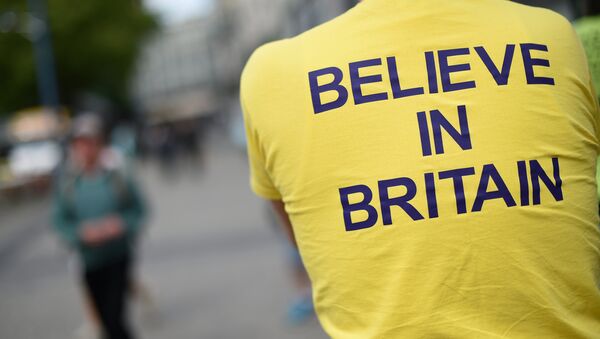Professor Curtice from University of Strathclyde explained that the two dominant methods of polling in the UK just now are telephone and internet polls, as opposed to companies which carry out door to door surveys. However, the picture they paint is not consistent: ‘Although in truth we don’t know how close the referendum is because the polls that are done over the internet consistently present the picture as being much narrower between the two sides than those over the phone.’
He highlighted that polls on social media cannot be trusted at all, as well as polls which are often promoted by the media – often it is those polls which are more accurate but less sensational, which get ignored. In addition, polls do not always accurately represent the voting population as those people who are more interested in politics tend to take part in polls and traditionally Conservative party supporters do not take part in polls in the same way as supporters of other parties. In the case of the EU referendum polls he noted that ‘Leave’ supporters in the EU referendum are more active than Remain supporters.’
On the other hand, with current polls demonstrating a close vote, he suggests that this leaves both sides reckoning that maybe they have a chance. John Harrison then asked why is it that when the EU population indicates a 50/50 split over Brexit, 70% of EU citizens say they’re not happy with the EU. Curtice explained that there were two main reasons for this: firstly, people are not happy with the way in which the EU dealt with the refugee crisis last summer and secondly, there is a degree of discontent regarding how the EU dealt with the financial crisis.
Curtice commented that the stability of the EU has been questioned:
‘If Britain does decide to leave, it will be damaging to the EU. If the UK leaves, who might be next. There is certainly discontent about the EU.’
John Harrison then asked if this anti-EU sentiment was dominated by the right-wing in Europe, to which Curtice responded: ‘It is more common on the right but not absent on the left’. He explained that as the EU is often viewed as a capitalist organisation, those on the left are increasingly critical of it as well.
Professor Curtice went on to say, why, in his opinion, the current EU referendum is fascinating:
‘It’s not played out as the Prime Minister anticipated… he was expecting that he could repeat the trick that Harold Wilson played back in 1975… in that event Harold Wilson went to Brussels, he renegotiated Britain’s terms of membership, came back and public opinion shifted quite dramatically in favour of staying. On this occasion when David Cameron came back from Brussels… the equivalent movement did not happen.’
He then made the important point that the EU referendum is fundamentally all about globalisation. He gave the example of two different voters: the University graduate working in the City and the 55 year-old British hotel worker. He stated that while the first would be quite happy to remain in the EU as it would provide opportunities for work and travel, the latter could perhaps be discontent because of the poor wages and conditions in the hospitality sector, thanks to cheap immigrant labour and a competitive job market which make it more difficult to find work.
Altogether, Professor Curtice gave the following advice:
‘Polls should be taken but shouldn’t be inhaled – you should be aware of what they say but always look at them critically.’

